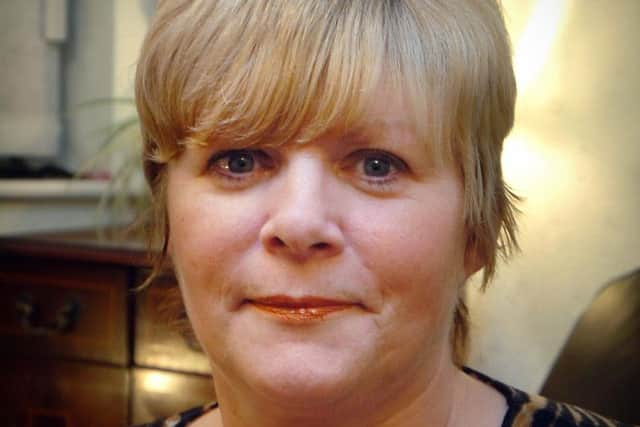Missing and ‘illegible’ records spark concern after being linked to five deaths at Blackpool Vic


The town’s coroner Alan Wilson and assistant coroner Tim Holloway have written to bosses at the Whinney Heys Road hospital to voice their worry that poor paperwork could even lead to more patients dying.
It comes after inquests into the deaths of James Fletcher, 27, and Tina Tate, 60, who died within weeks of each other, as well as three other people.
Advertisement
Hide AdAdvertisement
Hide AdMr Wilson first raised his concerns in 2017 and said he had “monitored the situation since then” but remained “concerned” record-keeping there “poses a risk of future deaths”.


The NHS trust that runs the hospital said it “would like to apologise for the identified issues” and promised bosses have been working on a fix.
In a statement, it said it wanted to “reassure people” it “is committed to improving its record keeping procedures and a business case for an electronic document management system, which would mean records would be immediately accessible to attending clinicians, is due to be considered” next month.
“The trust currently has an electronic patient record in its emergency department and is finalising plans to deploy this solution to the rest of the organisation,” it said.
Advertisement
Hide AdAdvertisement
Hide AdMrs Tate, nee Johnson, of Lowton Road, St Annes, died last June from multi-organ failure and complications following surgery to remove an ovarian tumour, while two underlying conditions - polyarteritis nodosa (PAN) and vasculitis - were also a factor.
Her inquest, held at Blackpool town hall in Talbot Square, was told the housewife, who set up the Blackpool and Fylde Cot Death Group after her eight-week-old twin son Graeme died from Sudden Infant Death Syndrome (SIDS) in 1982, had the operation on Tuesday, May 8, before being discharged two days later.
On May 13, Mrs Tate was bleeding from the wound and was re-admitted. An emergency operation was done, and a hole was spotted in Mrs Tate’s colon. That “most likely” happened during the first operation, the court was told.
Mrs Tate’s condition initially improved and medics considered discharging her, but the court was told a “deterioration in her condition was not fully appreciated by hospital medical staff and her condition was not escalated to the appropriate level of clinician”.
Advertisement
Hide AdAdvertisement
Hide AdMrs Tate, who was born in Lytham in November 1957 and married to Stephen Dronfield Tate, became unresponsive and died at around 8pm on June 16 with her loved ones at her bedside.
Described in a family notice as a “dearly loved wife, mother, daughter, nana and sister”, she was cremated in her hometown following a service at Our Lady Star of the Sea Church in St Annes.
The inquest into Mrs Tate’s death was carried out over two days in March, and was told how an expert was tasked with carrying out an internal review at the Vic.
But she was faced with “at times poor and illegible” paper records, while both the review and inquest were delayed because “clinical records could not be located for some time”.
Advertisement
Hide AdAdvertisement
Hide AdMr Wilson said: “Other investigations have been affected by similar issues: a further investigation into the death of [a patient named only as] JS ultimately proceeded in the absence of hospital records which reportedly went missing after the death and could not be found.”
Mr Wilson said he wrote to the hospital two years ago after an inquest was carried out into the death of patient ‘WB’ “in the absence of documentations which the trust was unable to locate”.
Months earlier, the court received a review into the death of patient ‘NM’ “which had been completed in the absence of some of the hospital records which could not be located.”
Mr Wilson said he did not believe the “quality of the records or the delay in them being located” contributed to Mrs Tate’s death, but warned: “Unless this type of issue is not addressed then risks will occur as a consequence.
Advertisement
Hide AdAdvertisement
Hide Ad“Medical professionals who take over the care of patients from other staff at handover need to be able to familiarise themselves with accessible and legible records.
“When this does not happen the quality of care received by patients can be affected. It seems to me that issues persist as regards the quality of record keeping within the trust and that it would be remiss of me not to raise that concern at this time.”
James Fletcher, who was born in Blackpool in October 1990 and lived in a home in Larbreck Avenue, Elswick, was admitted to the Vic on Thursday, July 12 last year so a feeding tube could be fitted into his stomach.
Mr Fletcher had severe disabilities, including cerebral palsy affecting all four limbs, and epilepsy, his four-day inquest in April was told.
Advertisement
Hide AdAdvertisement
Hide AdHe also had chronic dislocation of the right elbow, dislocation of the left elbow joint, a digestive disorder, a bladder disorder, a learning disability, and was unable to talk.
He was transferred to a general surgical ward after an “uneventful” operation but his condition worsened, assistant coroner Tim Holloway was told.
That was “probably” caused by a leak of stomach and bowel contents which led to a rare but known complication of such surgery called peritonitis.
“No consideration was given to the possible presence of peritonitis and no imaging capable of positively identifying that condition was undertaken and thus the peritonitis went undetected prior to James’ death,” Mr Holloway said in a report sent to the Vic.
Advertisement
Hide AdAdvertisement
Hide AdMr Fletcher died shortly before 11.10am on July 14, 2018, with a cause of death given as peritonitis, the leak of gastric content, and the feeding tube insertion. Cerebral palsy was also a factor, it was concluded.
Mr Holloway suggested the feeding tube – known as a ‘PEG’, or percutaneous endoscopic gastrostomy – should not have been used “following the onset of the peritonitis” and said: “It is possible that this contributed more than minimally, negligibly, or trivially to his death.”
But he said it was impossible to say whether the decision to only prescribe antibiotics the day before Mr James’ death had an impact.
He said the same of the hospital’s admitted failure to carry out vital signs observations, to escalate his condition and “make clinical provision for him” despite warning signs, and to “monitor his fluid balance” properly.
Advertisement
Hide AdAdvertisement
Hide AdMr Holloway highlighted several concerns with Vic bosses, including record keeping, and said: “There is a risk of future deaths because both patient care and the opportunity to learn valuable lessons following a death may be compromised by issues pertaining to the quality of record keeping and to the retention of records.”
Mr Holloway said “evidence revealed substantial periods of time elapsed, at times measuring nine or more hours, when no entry was made in the deceased’s history sheet”, which “carries the risk of material information concerning the condition and care of patients not being communicated” between medics.
He said “complete records were not provided to the court” despite orders given before Mr Fletcher’s inquest, and added: “It was understood from the trust that complete records were unavailable and yet it transpired on the first day of the inquest that further records were available but had not been found and produced previously.
“I am concerned that the system of record keeping gives rise to a risk that patients’ records which are material to their ongoing care will be lost or otherwise inaccessible.
Advertisement
Hide AdAdvertisement
Hide Ad“I am concerned that, without records of appropriate quality being made and retained, the opportunity to learn lessons through the process of internal investigations and, should it arise, the coroner investigation and inquest process will be compromised.”
Other issues included “a miscommunication or misunderstanding” linked to the taking of an X-ray, a “lack of knowledge” amongst medics about the risk of peritonitis post PEG-surgery and, on a related note, the risk of peritonitis being “shrouded by the identified risks of sepsis and of aspiration pneumonia”.
Certain essential medication was also not kept in proximity to Mr Fletcher “where it was required”, and Mr Holloway said: “I am concerned that, in such circumstances, essential medication may be required urgently to protect the life of a patient and that systems should be robust enough to ensure that it is available in the correct location.
“In my opinion, action should be taken to prevent future deaths and I believe you, Blackpool Teaching Hospitals NHS Foundation Trust, have the power to take such action.”